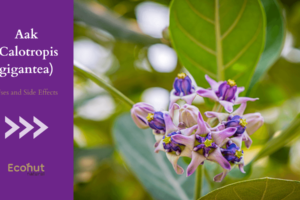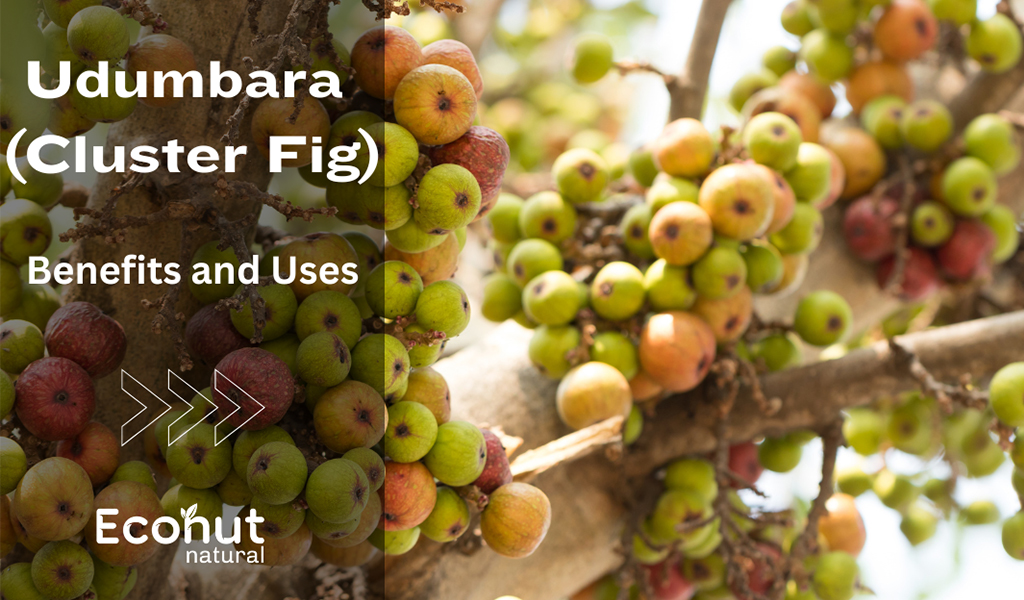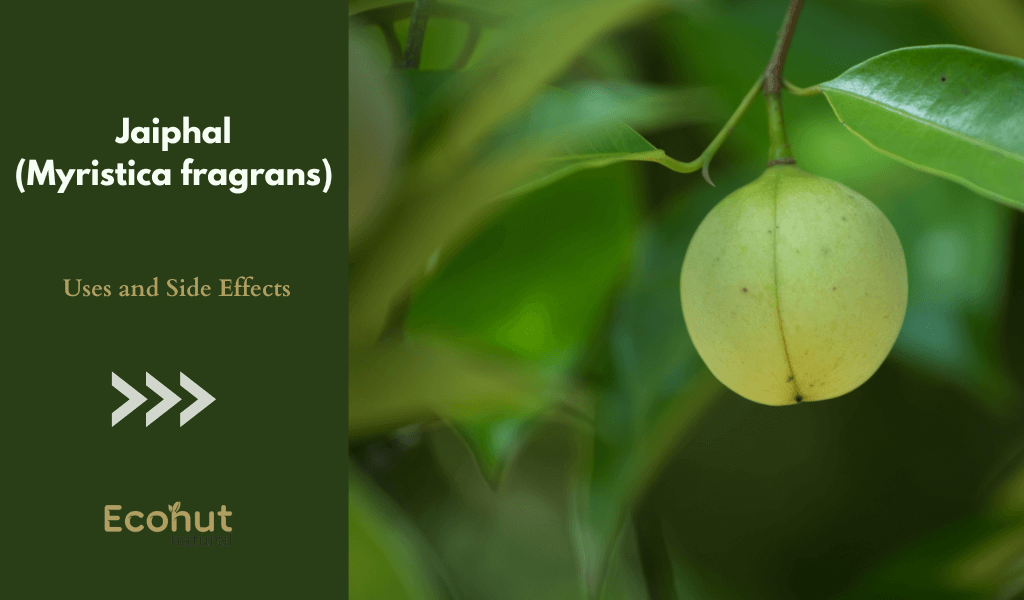The Udumbara, also known as the Cluster Fig or Ficus glomerata, is a species of fig tree native to the Indian subcontinent and parts of Southeast Asia. It belongs to the Moraceae family.
Apart from its cultural and ecological significance, the Cluster Fig tree has several practical uses. Its wood is used in furniture making, construction, and for fuel. The figs are consumed fresh or processed into jams and preserves. In traditional medicine, various parts of the tree are used to treat ailments such as diabetes, diarrhea, and skin diseases.
When sick, patients are often advised to eat fruits and even in school, children are asked to eat one fruit daily. In fact, fruits prove beneficial in removing weakness by supplying nutrients to our body. Many fruits are found to be very healthy for us but we either do not know about them or we do not have much information about them. One of these fruits is Sycamore. Sycamore has bile suppressant, thirst quencher, labor reliever, constipation relieving nutritional properties and along with this it is also very sweet.
Classification of Udumbara, Cluster Fig (Ficus Glomerata)
| Scientific name | Ficus |
| Family | Moraceae |
| Genus | Ficus |
| Kingdom | Plantae |
| Order | Rosales |
| Tribe | Ficeae, Dumort |
Names of Udumbara, Cluster Fig (Ficus Glomerata)
English: Udumbara, Cluster Fig
Sanskrit: Udumbara
Marathi: Audumbar, Oudumbar
Gujarati: Goolar
Hindi: Gular, Audumbar
Kannada: Atti
Malayalam: Athi
Punjabi: Gular
Odia (Oriya): Oudumbara
Assamese: Udumbara
Bengali: Dumur
Tamil: Aththi
Telugu: Athi
Nepali: Audumbar
Urdu: Goolar, Udumbara
Udumbara, Cluster Fig (Ficus Glomerata) Health Benefits
Ficus glomerata, commonly known as the cluster fig or gular fig, is a species of fig tree native to the Indian subcontinent and Southeast Asia.
Traditional Medicine:
In traditional medicine systems like Ayurveda, various parts of the Ficus glomerata tree, including its leaves, bark, and fruits, are used for medicinal purposes. It’s believed to have properties that can help with conditions such as inflammation, diabetes, digestive issues, and skin ailments.
Anti-inflammatory Properties:
Some research suggests that extracts from Ficus glomerata possess anti-inflammatory properties. This could be beneficial in managing inflammatory conditions in the body.
Antimicrobial Activity:
There is some evidence to suggest that Ficus glomerata possesses antimicrobial properties, which could help in fighting off certain bacterial and fungal infections.
Anti-diabetic Potential:
Preliminary studies have shown that certain compounds found in Ficus glomerata may have hypoglycemic effects, potentially helping to regulate blood sugar levels. However, more research is needed to confirm these effects and understand their mechanism of action.
Antioxidant Activity:
Antioxidants are compounds that help neutralize harmful free radicals in the body, thus protecting cells from damage. Ficus glomerata contains antioxidants that may contribute to overall health and well-being by reducing oxidative stress.
Digestive Health:
In traditional medicine, Ficus glomerata is often used to promote digestive health. It’s believed to have properties that aid in digestion, alleviate constipation, and soothe gastrointestinal discomfort.
Wound Healing:
Some studies have indicated that extracts from Ficus glomerata may have wound-healing properties. These properties could be useful in traditional wound care practices.
Read Also: Benefits of Lavender Oil for Hair
Udumbara, Cluster Fig (Ficus Glomerata) side effects
It’s primarily known for its religious and cultural significance in various traditions, rather than for its medicinal properties. However, like many plants, it may have certain effects, both positive and negative, on the human body.
Interactions with medications:
As with any herbal remedy, there’s a possibility of interactions with medications. If you’re taking any prescription medications, it’s essential to consult with a healthcare professional before consuming Udumbara preparations.
Pregnancy and breastfeeding:
There’s limited information available regarding the safety of Udumbara during pregnancy and breastfeeding. It’s advisable for pregnant and breastfeeding women to err on the side of caution and avoid consuming it unless advised otherwise by a healthcare provider.
Allergic reactions:
Some individuals may be allergic to components of the Udumbara plant, which could result in allergic reactions ranging from mild skin irritation to more severe symptoms such as difficulty breathing.
Digestive issues:
Consuming excessive amounts of Udumbara fruit or other parts of the plant may lead to digestive discomfort such as diarrhea, stomach upset, or bloating in sensitive individuals.
Other potential effects:
Due to the limited scientific research on Udumbara’s medicinal properties and side effects, there may be other unknown or undocumented effects associated with its consumption or use.
- Consuming sycamore in excess can cause fever.
- Harvested fruits should not be eaten in large quantities; fallen fruits feed insects.
- Pregnant women should contact their doctor first.
Conclusion
Its tiny flowers, known as Udumbara blossoms, bloom rarely, often sparking spiritual interpretations in various cultures. Despite its small size, the Udumbara holds a large place in mythology and folklore, symbolizing purity, divinity, and auspiciousness. Ecologically, it plays a vital role in supporting biodiversity, providing food and shelter for numerous species. In conclusion, the Udumbara stands as a captivating example of nature’s beauty and its profound connection to human culture and the environment.
FAQS
How should Ficus glomerata be incorporated into a healthy diet?
Ficus glomerata fruits can be enjoyed fresh as a snack, added to salads, or used in desserts and smoothies. Incorporating them into a balanced diet can provide a tasty and nutritious addition to meals while reaping their potential health benefits.
Is Ficus glomerata edible?
Yes, the fruits of Ficus glomerata are edible. They are often consumed raw or processed into jams and preserves. However, it’s essential to ensure they are ripe before consumption.
Can Ficus glomerata be used for medicinal purposes?
Yes, various parts of the Ficus glomerata tree, including the leaves, bark, and fruits, have been used in traditional medicine for treating ailments such as digestive issues, skin conditions, and respiratory problems. However, it’s important to consult with a healthcare professional before using it for medicinal purposes.











